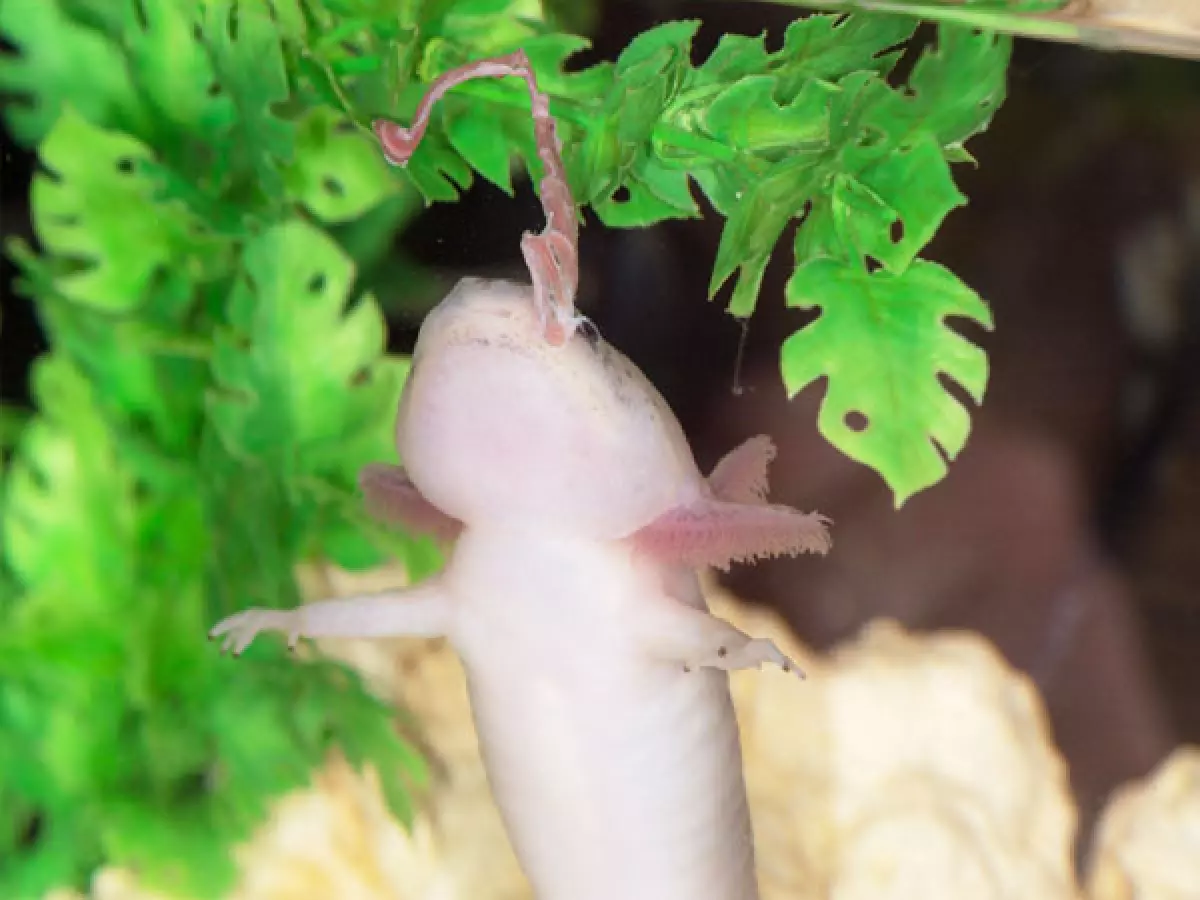Are you a proud owner of axolotls? Congratulations! These fascinating creatures make for excellent pets. But, do you know how much and how often to feed them? This crucial aspect of axolotl care ensures their optimal health and well-being. In this article, we will delve into the dos and don'ts of feeding your axolotls, providing you with valuable insights to keep them happy and healthy.
 Your axolotl needs proper nutrition to thrive.
Your axolotl needs proper nutrition to thrive.
How Much to Feed Your Axolotl?
Contrary to popular belief, axolotls don't require copious amounts of food to survive. In fact, overfeeding them can lead to digestive issues and potentially harm your axolotl. The optimal feeding schedule is every 2-3 days, ensuring moderation in the amount of food provided. This timeframe prevents overfeeding, while also keeping hunger at bay.
Axolotls are remarkably adaptable when it comes to food. They can comfortably survive for more than 3 days without eating. However, it's essential to strike a balance between frequency and quantity. Even when feeding them every 2-3 days, ensure they consume only as much as they can eat in roughly three minutes. For example, a meal consisting of an earthworm or a few of them should suffice.
How Long Can Axolotls Go Without Feeding?
Axolotls are hardy creatures that can adapt well to fluctuations in their food supply. In the absence of food, they can survive for up to 3 weeks. However, it's important not to push the limits. Although they possess this remarkable ability, it's crucial to maintain an optimal feeding routine as discussed earlier.
Things to Consider when Feeding Your Axolotl
Feeding axolotls requires careful consideration to ensure their well-being. Here are some key factors to keep in mind:
Don't Overfeed
One of the most vital aspects of axolotl care is to avoid overfeeding. This can easily happen if you're not aware of their feeding requirements. Many new axolotl owners mistakenly feed their pets every day. However, this can lead to several issues. Overfeeding causes digestive problems, such as impaction, obesity, and even death. It can also result in leftover food sinking and rotting, leading to foul odors and water cloudiness. To prevent these complications, feed your axolotl every 2-3 days with moderate amounts of food. If your axolotl rejects the food, it has likely eaten enough.
Always Feed a Variety of Foods
Ensuring a diverse diet for your axolotl is imperative. While flakes and pellets can be part of their diet, they should not be the sole food source. Axolotls enjoy live and frozen foods, such as bloodworms, other types of worms, larvae, and similar options. Offering a variety of foods mimics their natural diet and provides essential nutrients.
Make Sure All of Your Axolotls Are Getting Enough Food
If you have multiple axolotls, it's crucial to ensure each one receives sufficient food. Feeding them adequately may require some trial and error. Pay attention to their consumption patterns and adjust the portions accordingly. This way, you can prevent any of your axolotls from being starved.
In conclusion, maintaining a proper feeding routine is essential for the well-being of your axolotls. Feed them smaller to intermediate portions every 2-3 days, taking into account their ability to consume the food within 1-3 minutes. Avoid overfeeding, provide a variety of foods, and ensure all your axolotls receive adequate nutrition. By following these guidelines, you'll promote a healthy and thriving axolotl habitat. Happy feeding!

















